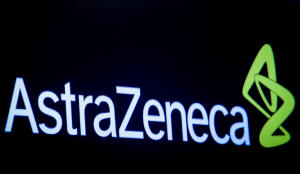 AstraZeneca,
Swiss firm Neurimmune ink $760 million deal for antibody drug AstraZeneca,
Swiss firm Neurimmune ink $760 million deal for antibody drug
 Send a link to a friend
Send a link to a friend
[March 01, 2022]
(Reuters) -AstraZeneca Plc has agreed to
develop an antibody-based therapy with Swiss biotechnology firm
Neurimmune for a rare, underdiagnosed condition that can lead to heart
failure in a deal valued up to $760 million, the drugmaker said on
Tuesday.
|
|
 AstraZeneca's rare diseases unit Alexion and Neurimmune - the firm
behind the discovery of Biogen's Alzheimer's drug aducanumab - will
work on evaluating a monoclonal antibody for the treatment of
transthyretin amyloid cardiomyopathy. AstraZeneca's rare diseases unit Alexion and Neurimmune - the firm
behind the discovery of Biogen's Alzheimer's drug aducanumab - will
work on evaluating a monoclonal antibody for the treatment of
transthyretin amyloid cardiomyopathy.
The potentially fatal condition is characterised by deposits of
proteins called amyloid fibrils in the walls of the heart which
causes them to become stiff and result in the organ being unable to
pump and circulate blood effectively.
Under the agreement, Alexion would pay Neurimmune an upfront payment
of $30 million and it would be eligible for payments of up to $730
million upon completion of some targets, plus royalties on sales,
AstraZeneca said in a statement.

[to top of second column] |
 Neurimmune's candidate, NI006, belongs to a
class of therapies called monoclonal antibodies
which are lab-generated compounds mimicking the
body's natural defences. NI006 targets the
protein deposits and breaks them down.
Anglo-Swedish drugmaker AstraZeneca, which made
a $39 billion bet on Alexion's rare diseases
portfolio in 2020, has had major success with
monoclonal antibodies in recent times with its
Evusheld treatment for COVID-19.
(Reporting by Pushkala Aripaka in Bengaluru;
Editing by Rashmi Aich)
[© 2022 Thomson Reuters. All rights
reserved.] This material may not be published,
broadcast, rewritten or redistributed.
Thompson Reuters is solely responsible for this content. |